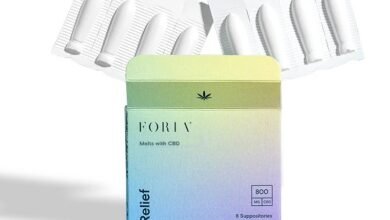What Is the Skin Barrier? Dermatologists Explain
What is the skin barrier?
If you think of your skin as a club, the barrier is its bouncer.
“The skin barrier is our outermost layer of skin, our epidermis, or stratum corneum,” says Elisabeth Nehme, an esthetician, skin-care educator and trainer, and global brand ambassador for Comfort Zone. “It’s made up of hydrating elements and lipids, or oils, designed to keep the good things in (think hydration, moisture, and nutrients) and the bad things out (pollution, make-up, sun damage).”
What does it mean to have a compromised skin barrier?
A compromised skin barrier can be the sneaky culprit behind a lot of different dermal woes. In other words, it could be the root cause to target if you’re having a variety of problems with your skin. Think: “dehydration, irritation and sensitization, and even premature wrinkles,” says Nehme, as well as acne, rashes, and redness.
This is a particularly prominent topic when we experience extreme weather changes (read: right now). “Since the environment — as well as your physiological health — can affect the barrier, changes in weather or emotional stress can lead to rough, dry, sensitized, or acne-prone skin,” says Christine Lee, esthetician and international skin-care educator at Comfort Zone. “Sometimes we cause damage to the barrier with the products we put on our skin, if [a product is] too aggressive or active.”
What causes a compromised skin barrier?
In short… a whole hell of a lot. If you live in a city, experience weather changes, shower at the wrong temperature, or simply exist whilst aging, your skin barrier can become compromised. Cool!
Dr. Stéphanie Soulé, who has a doctorate in life and health Sciences and is the head of scientific communications at Typology Paris, says various external and internal factors can mess with this outer layer, which again can lead to dry and flaky skin, itching, and redness. As if that wasn’t enough, a compromised barrier also makes it easier for dirt and grime from the environment to get into your skin, causing breakouts.
“These factors include prolonged exposure to low humidity, cold weather, physical friction, exposure to irritating or allergenic substances, cigarette smoke, use of alkaline products, overexposure to the sun, exposure to overly hot water in hot showers, saunas, etc., excessive or vigorous cleaning, over-exfoliation, excessive alcohol consumption, certain medications like steroids, pollution particles, aging, genetically dry skin, psychological stress, and skin diseases like eczema, psoriasis, rosacea, and xerosis.”
Because it’s fairly easy to compromise a skin barrier (see above), many people deal with the fallout. This is why keeping your barrier healthy is so important!
How do you repair your skin barrier?
Good news: you’re not doomed if there’s damage. There are certain skin-care ingredients to look for to treat acute damage. But in general? It’s more of a 360 approach. Nehme says the best way to get your barrier in strong, healthy shape—aside from “exceptional skin care products”—is through a healthy lifestyle.
“Managing stress, sleeping well, and eating a balanced diet rich in antioxidants,” are all essential, Nehme explains.
As for topical treatment, it’s imperative to focus on a gentle routine, AKA “restoring and nourishing the skin every day and night with products that are active without being aggressive,” says Nehme.
Remember, in this case, less is more. You don’t need a 27-step regimen. “Using fewer products overall with a focus on hydration and lightweight nourishment can be a good way to get your skin back into balance,” says Lee.
How to choose skin barrier-friendly products
In terms of what “active, not aggressive,” means, the experts outlined the following routine:
1. Gently cleanse
“Start a gentler cleanser—one that does not foam excessively, which can dry out and weaken the skin,” says Lee. Creamy or milky formulas are your best bet here, as gels and foams tend to strip the skin (another thing that can—you guessed it—compromise your skin barrier).
2. Gently exfoliate
“Gentle” is the key word here, because over-exfoliation can cause your skin barrier to become even more damaged. Exfoliating removes dead skin cells and stimulates fresh, new skin, and should be done once or twice a week (max!) using enzymes or gentle chemical exfoliants like lactic and azelaic acids.
3. Replenish
“Hydrate and moisturize with nourishing creams that quench the skin and protect that barrier from daily stressors,” says Lee.
Dr. Soulé echoes these sentiments. “To repair the compromised skin barrier and soothe irritation, you can use skin-care products with moisturizing and repairing formulations,” she says. She suggests choosing a product with humectants, “such as hyaluronic acid, panthenol, glycerin, sodium PCA, and polyglutamic acid, that attract and retain water in the skin barrier.”
Additionally, there are some ingredients “that help restore and strengthen the structural integrity of the skin barrier,” says Dr. Soulé, including “ceramides, free fatty acids, natural moisturizing factors, squalane, and cholesterol.” You can also try “occlusive moisturizers, [such as] vegetable oils, vegetable waxes, vegetable butters, that create a thin film on the skin, limiting moisture loss.”
You should also stay away from anything abrasive. “It’s important to avoid skin-care products with high amounts of denatured alcohol, as they can irritate the skin,” says Dr. Soulé. “Similarly, avoid alkaline products that can alter the skin’s pH and disrupt the protective barrier. While some cosmetic ingredients are beneficial for the skin, others, such as fruit acids (glycolic acid, lactic acid, etc.) and retinol, can potentially damage the skin barrier.” If you’re set on using products with these ingredients, Dr. Soulé says to simply be careful, “Follow the manufacturer’s instructions and limit their use to minimize their impact on the skin.” Finally, avoid heavy fragrances, as Lee says they can agitate an already-aggravated skin barrier.

